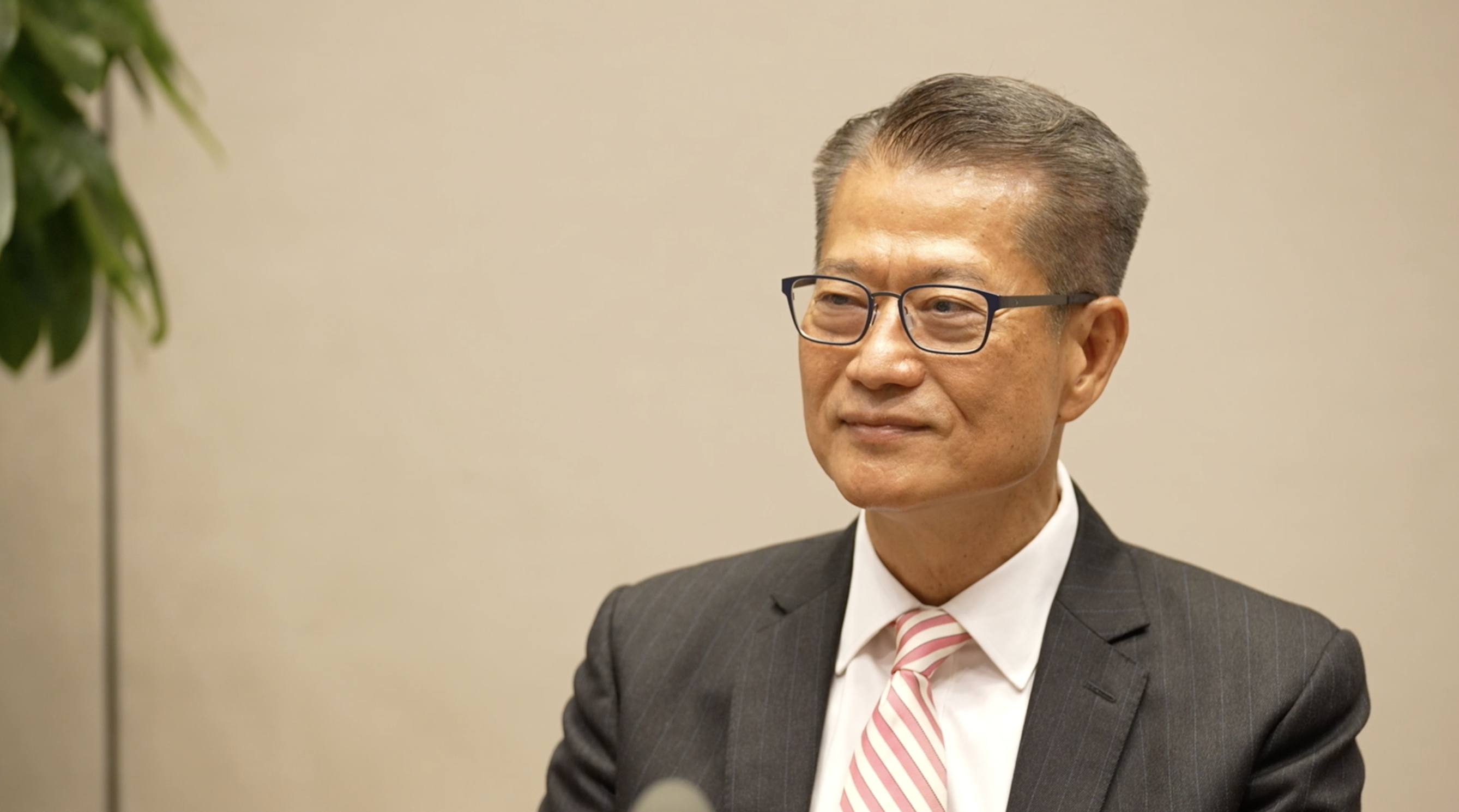03:54

Hong Kong has "grown a lot" despite the "chaos in 2019" and two years of pandemic disruptions, but keeping the virus under control and relaxing border restrictions with the Chinese mainland will be the key to further recovery, said Paul Chan, financial secretary of the Hong Kong Special Administrative Region (HKSAR).
After overseeing one of Hong Kong's most tumultuous periods, Chan will retain his post in the HKSAR government led by the newly elected and appointed sixth-term chief executive John Lee, an appointment widely seen as the incoming administration's effort to bolster businesses' confidence.
Hitting back at skeptics that question Hong Kong's competitiveness as a global financial center following 2019 unrest and strict COVID-19 policies, Chan said numbers and facts speak for themselves.
In 2020, 500 billion Hong Kong dollars were raised through initial public offerings on the Hong Kong Stock Exchange. Assets under management grew by 21 percent year on year to nearly 35 trillion Hong Kong dollars.
Hong Kong also held onto its third-place ranking in the latest Global Financial Centres Index, which evaluates 119 financial hubs around the world.
"We trail behind New York and London. In Asia, we are number one," Chan said, adding that the National Security Law and electoral improvements have created a stable business environment.
"Because it has saved us from the political impasse and chaos, Hong Kong is now in the best position to focus on economic development and improving people's livelihoods."
Hong Kong also stands to gain from a potential "mass delisting" of Chinese firms from U.S. stock exchanges.
As regulators in the U.S. and China dispute over access to audits, Chan expected more companies will use Hong Kong as a hedge against delisting and geopolitical risks.
Question-and-answer website Zhihu raised 833 million Hong Kong dollars ($106.25 million) in its Hong Kong IPO in April, becoming the first Chinese internet company to have dual primary listings in both Hong Kong and the United States.
'Managing COVID-19 is key to economic recovery'
Chan, however, acknowledged that Hong Kong has had a rough start to 2022. First-quarter GDP contracted 4 percent from a year earlier, breaking four consecutive quarters of growth.
"The fifth wave of COVID-19 has disrupted cross-border movements with the Chinese mainland. All three drivers of economic growth, that is consumption, export and investment, suffered declines in the first quarter," Chan explained.
He said keeping the pandemic under control will be the key to recovery, and expected domestic consumption to bounce back with easing of social-distancing rules and another round of cash stimulus.
Residents will receive a second batch of 5,000 Hong Kong dollars ($637) in consumption e-vouchers from August 7, after the first round of the same amount was distributed in April.
Chan admitted connectivity with the Chinese mainland remains the biggest drive of Hong Kong's recovery.
"If borders re-open, more tourists and investments will come through. It will speed up our recovery. We are working very hard to make it happen."
Financing the 'green transition'
Looking into the future, Chan wanted Hong Kong to be a financing hub for climate-friendly projects. The city has issued multi-currency green bonds totaling $10 billion since 2019.
Citing an estimate by the Hong Kong Monetary Authority, Chan said Asia will need about $66 trillion for climate risk management in the next 30 years. He also underscored China’s commitment to reach peak emissions by 2030 and carbon neutrality before 2060.
"Going into the future, green economy is key. Hong Kong is well-positioned to guide international capital and match them with green projects."
In May, an inaugural Retail Green bond drew enthusiastic subscription from investors. The proceeds will be allocated to a wide range of low-carbon initiatives such as waste management and green buildings.
"In order to achieve a green economy, the buy-in from the general public is very important. And from a financial inclusion perspective, it would be good if they can participate and get a decent return," Chan said.

